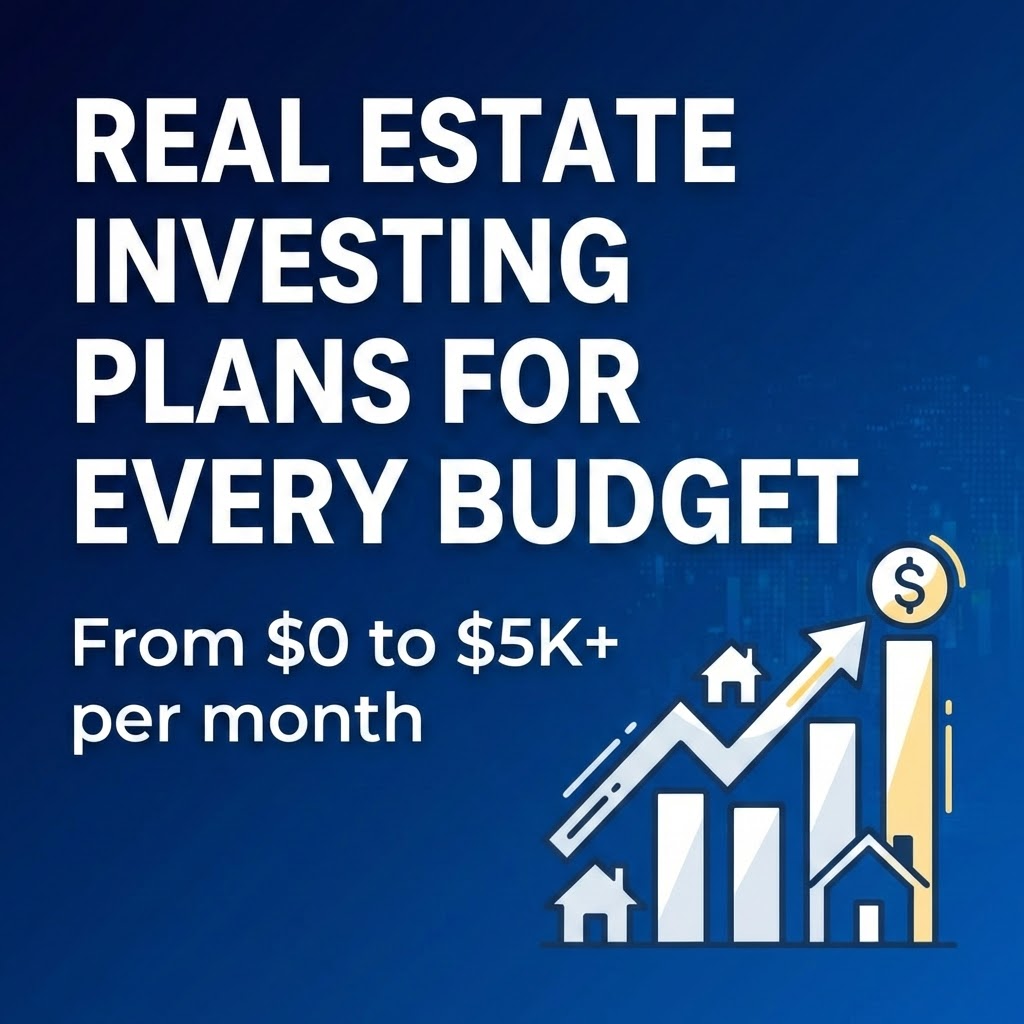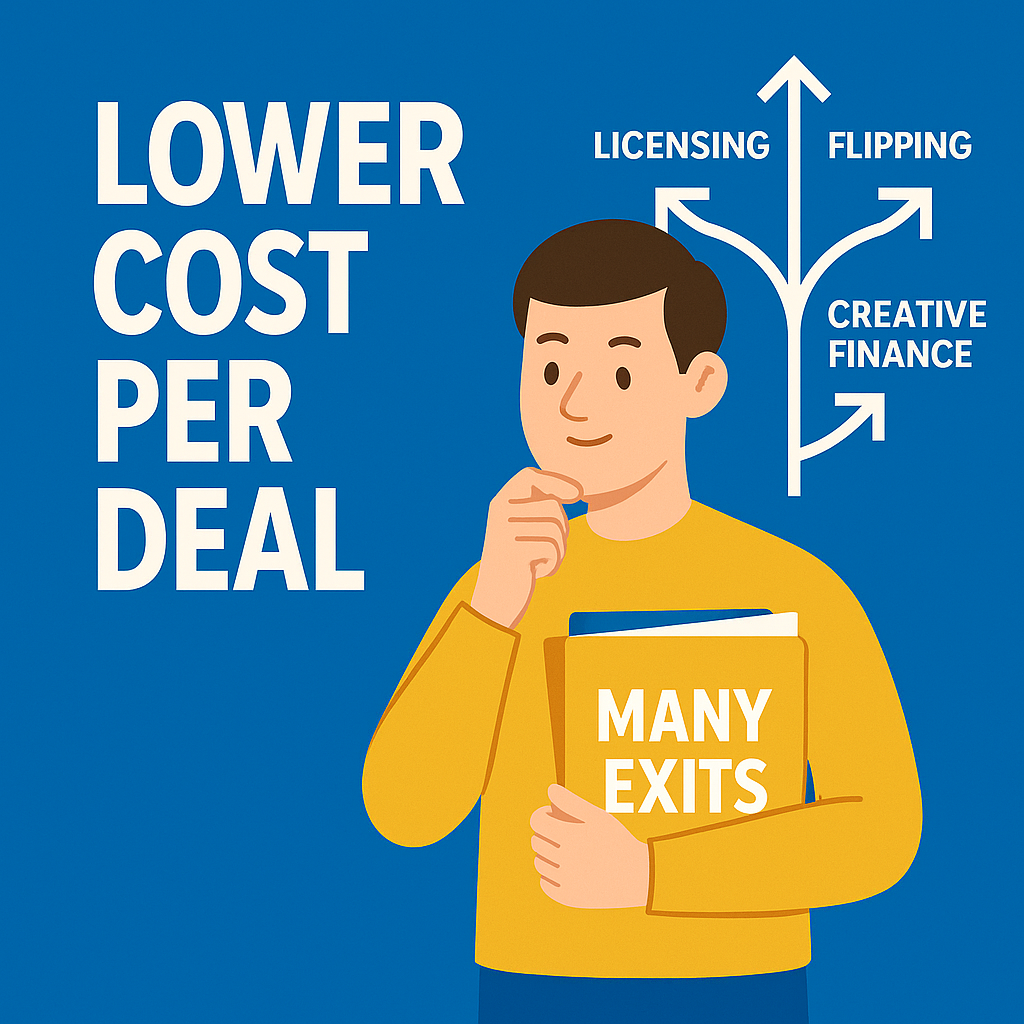Generating motivated seller leads is just the start. For real estate investors, the real challenge often lies in funding those deals—especially for beginners who believe they need a pile of cash to get started. In this guide, Ashley Kehr shares practical, proven financing strategies that empower investors to move forward confidently—even without traditional capital. From conventional bank loans to creative financing structures, this deep dive gives investors at all levels the tools to close more deals and scale their portfolio fast.
Breaking the "Cash-Only" Mindset
A common misconception in real estate is that you need substantial savings or immediate access to cash to begin investing. Ashley Kehr debunks this early. Her own experience as a property manager taught her about refinancing strategies long before she understood the breadth of financing options available. Observing investors refinance and roll over their gains into other ventures was a turning point. It wasn’t about how much money you had—it was about how well you understood the systems available.
Early Lessons as a Property Manager
Ashley’s mindset shift began when she worked as a property manager for another investor. She witnessed firsthand how her employer used refinancing to unlock capital and grow a portfolio—an approach she had never imagined. This eye-opening experience planted the seed that real estate wealth wasn’t about having cash, but about knowing how to leverage debt strategically.
Learn, Filter, and Piece It Together
There’s no shortage of free information on how to invest in real estate. The challenge is sifting through it to identify what’s valid, what’s legal, and what’s merely a sales pitch. Ashley emphasizes that finding reputable education sources, such as BiggerPockets, is key. But more importantly, investors need to piece the information together—learning how each component of financing, legal compliance, and deal structure fits into the big picture.
Navigating the Learning Curve
Ashley highlights the overwhelming nature of self-education. It’s not just about finding information—it’s about figuring out what’s trustworthy, identifying what gurus are trying to sell you, and ensuring your strategies are legal. That mental juggling act can slow many investors down in the early days.
BiggerPockets as a Gateway to Creative Finance
BiggerPockets wasn’t just a knowledge source for Ashley—it was a launchpad for discovering creative strategies like seller financing and subject-to deals. Through community discussions, she learned from investors doing real deals and sharing raw, actionable advice.
Start with the Banks
For beginners, the most accessible option is often traditional bank financing. Ashley recommends not just asking banks if they offer loans, but instead presenting your full profile:
- Your income level
- Your debt-to-income ratio
- Whether you already own a home or are renting
- The intended use of the property (house hacking, short-term rental, long-term investment, etc.)
By presenting your situation clearly, you open up a dialogue with loan officers who can suggest the best products based on your goals—not just cookie-cutter 20% down 30-year fixed loans.
Let the Bank Guide You
Ashley advises against walking into the bank and dictating terms. Instead, tell them your goals and financial details, then let the loan officer suggest products. This approach can uncover loan types you never knew existed, with better terms than you imagined.
Unlock Better Loan Terms Through Transparency
Ashley shares her own recent experience where transparent communication with the bank led to discovering a loan product that offered significantly better interest rates and terms than she anticipated. This reinforces the value of engaging in open, informed conversations with lenders rather than defaulting to assumptions.
A Better Loan Than Expected
Ashley recently approached a lender expecting a standard product—only to discover she qualified for something far better. Because she was clear and open about her intentions, the bank was able to match her with a deal that exceeded her expectations in both interest rate and flexibility.
Consider Commercial Lending
If residential lending doesn't align with your goals or situation, commercial lending may be the next best step. Commercial lenders focus more on the property’s potential than your personal financial background. This can be advantageous for:
- Investors with multiple properties
- Those whose debt-to-income ratios are maxed
- Deals where the value of the asset justifies the loan
Although terms may not be as favorable, commercial financing can be a stepping stone to scaling your portfolio—especially when structured properly.
Match Lending Type to Investment Duration
Ashley notes that understanding whether your investment is short-term or long-term is critical when choosing between loan types. For example, a commercial loan might make more sense for a short-term flip, while a residential loan could be ideal for a buy-and-hold rental. Always align your financing with your exit strategy.
Commercial Lending Doesn’t Affect Personal DTI
A standout benefit of commercial loans is that they don’t impact your personal debt-to-income ratio or credit capacity. This allows investors to scale without burdening their personal financial profile.
Explore Creative Financing Options
Once you're familiar with traditional avenues, it’s time to get creative. Ashley breaks down a few strategies that helped her fund deals without always turning to banks:
- Seller Financing: The seller becomes the lender. You skip the bank and pay the seller directly in agreed installments.
- Subject-To Deals: You take over the seller’s existing mortgage while the title transfers to you.
- Private Lending: Individuals with capital—who may not have time to invest actively—fund your deal in exchange for returns.
These approaches rely heavily on trust and networking. But the power lies in flexibility, lower entry barriers, and fewer bureaucratic hurdles.
Private Lending Powered Most of Her Deals
Ashley didn’t just dabble in private lending—it’s how she funded the majority of her investments. This proves that strong relationships can often replace conventional financing entirely.
No More Reapplying for Every Deal
One of the most underrated benefits Ashley experienced with private lending was avoiding the repetitive paperwork and approval process of bank loans. With the right lenders in her circle, she didn’t need to reapply for financing every time—saving time and stress while scaling her portfolio.
Why Private Lenders Say Yes
One of Ashley’s key insights is that private lenders often have idle cash earning minimal returns in savings accounts. By offering them better returns, investors can form win-win partnerships that fund deals quickly and efficiently.
Network, Share, and Ask
A key takeaway from Ashley’s approach is the power of networking. The more openly you share your goals and intentions, the more opportunities seem to arise. Talk to your bank, real estate connections, and potential private lenders. Be transparent. Be specific. The more you articulate your vision, the more likely you are to find a match with someone who wants to partner, lend, or offer insights.
Just Talk to People
Ashley and her co-host hammer home one thing: talk to people. Whether it’s a lender, a seller, or a friend with capital—telling people your vision creates opportunities. Clarity invites collaboration.
Just Find the Deal
Ashley and her co-host agree on one vital mantra: just go find the deal.
If the numbers work and the property is sound, financing will follow. Whether it’s through a traditional lender, a commercial bank, or a private partner, capital tends to chase good deals—not the other way around. That’s why your focus should be on:
- Mastering deal analysis
- Understanding local markets
- Practicing clear and confident deal presentations
If you do this well, money will come.
"If You Find the Deal, the Money Will Come"
Ashley puts it simply: "If you find the deal, the money will come." This isn't just a motivational line—it’s a core truth in real estate. Focus on the numbers. Nail the value. Capital follows confidence and opportunity.
Final Thoughts: Funding Follows Confidence and Clarity
Real estate investing isn’t limited by capital—it’s limited by belief and strategy. As Ashley Kehr shows, funding your deals is less about having money and more about knowing where and how to ask for it. Whether you’re tapping a bank, pitching a private lender, or structuring a seller-financed deal, the key is clarity. Know your numbers, articulate your strategy, and approach every conversation with confidence.
Key Takeaways
Cash Is Not a Prerequisite for Getting Started
You don’t need a pile of cash to invest. Understanding financing strategies matters more than personal savings.
Refinancing Is a Strategic Tool
Ashley’s first big lesson was seeing investors use cash-out refinancing to fund additional deals—debt can be a wealth-building tool.
Self-Education Must Be Filtered Carefully
Free content is everywhere, but separating hype, legality, and real advice is critical to avoid costly mistakes.
Present Your Full Profile to Banks
Instead of asking for a specific loan type, share your full financial picture and let banks suggest the best loan products.
Be Transparent with Lenders
Open conversations with loan officers can reveal better-than-expected terms and products you didn’t know existed.
Commercial Lending Offers Flexibility
It focuses on the property, not personal finances—and doesn’t affect your personal DTI, helping you scale faster.
Match Loan Types to Investment Goals
Align your financing with whether the deal is short-term or long-term for optimal structure and terms.
Creative Financing Opens New Doors
Techniques like seller financing, subject-to, and private lending provide alternatives to traditional bank loans.
Private Lenders Are a Scalable Resource
Ashley funded most of her deals through private capital—these lenders are often looking for better returns than the bank offers.
Networking Is Everything
Tell people your goals. Opportunities often arise from simply being clear about what you’re trying to accomplish.
Stop Reapplying—Build Repeatable Systems
Private lenders reduce the friction of repeated loan applications, making funding faster and less bureaucratic.
Focus on Finding the Deal First
The core truth: if the deal is good, the money will follow. Let your numbers speak, and capital will come to you.
Ready to Take the Next Step?
If you’re serious about building your real estate business, it starts with finding motivated seller leads—and then knowing how to fund the deals you uncover. Let us help you generate high-quality leads and show you how to turn them into profitable opportunities.
Build your business. Fund more deals. Grow faster.






